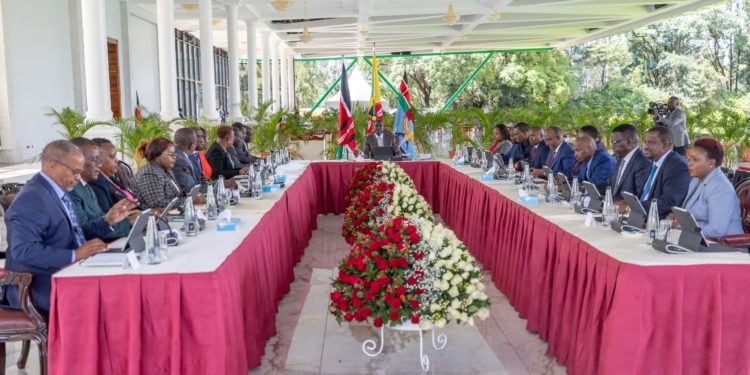The cabinet has backed a government directive to slash the monthly stipend for medical interns from KES 206,000 to KES 70,000, citing the need for fiscal consolidation amid rising debt levels.
The decision, taken during a cabinet meeting chaired by President William Ruto on Tuesday, aims to align the remuneration of interns in the healthcare sector with that of their counterparts in other public service domains, who typically earn around KES 25,000.
The contentious issue of intern stipends was one of the few remaining sticking points in ongoing negotiations with healthcare workers, whose protracted industrial action has disrupted services nationwide. According to the briefing provided to the cabinet, 19 issues were initially contested, but all but the intern allowance have now been resolved through agreements on basic salary arrears, scholarships, and medical insurance.
Beyond the healthcare dispute, the cabinet meeting covered a wide range of pressing matters, including the ratification of regional and international treaties, preparations for Labour Day celebrations, and progress updates on key initiatives such as the 15 Billion Tree-Growing Programme.
Notably, the cabinet approved revised guidelines on the terms and conditions of service for board members and staff of State Corporations, aligning them with recent presidential directives on fiscal management. These guidelines establish salary bands and allowances for top executives, board members, and university officials, while also setting new standards for governance and ethical conduct within these entities.
In a bid to enhance agricultural productivity, the cabinet was also briefed on the ongoing fertiliser distribution programme, which has seen a 100% increase in uptake compared to the same period last year. So far, 2.9 million bags have been distributed to over 538,000 farmers across 42 counties, up from 1.09 million bags to 270,000 farmers in April 2022.
President Ruto, however, sounded a stern warning against any attempts to undermine the programme through the supply of substandard fertiliser, vowing tough measures against those who “adulterate an important national programme.”
The cabinet’s deliberations extended to the contentious Itare and Arror dam projects, approving the terms of a negotiated settlement that will see the Itare Dam completed while construction on the Arror Dam commences. The contractor, CMC de Ravenna, had previously initiated arbitration proceedings, but has since withdrawn the cases, paving the way for an out-of-court settlement.
To address land issues in the Naivasha region, the cabinet greenlit the purchase of 11,000 acres, with 6,000 acres earmarked for resettling squatters and the remaining 5,000 acres designated for industrial development.
















